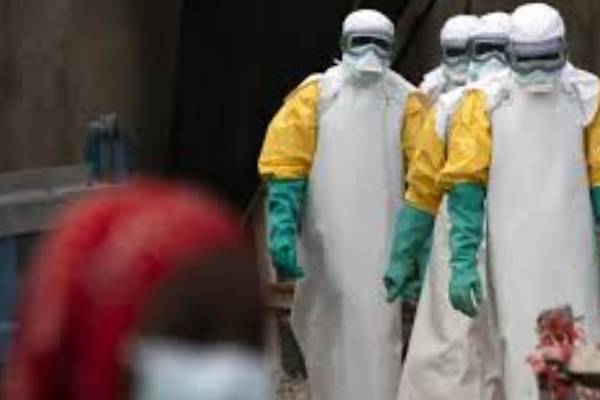By Rapheal
Copyright thesun

From Isaac Anumihe, Abuja
National Biosafety Management Agency (NBMA) has urged Nigerians to be cautious following reports of outbreak of viral haemorrhagic fever popularly known as Ebola Virus Disease (EVD) in neighbouring countries.
It assured of its commitment to safeguarding human, animal and plant health as well as the environment and also vowed to regulate modern biotechnology and put measures in place to ensure the safe management of emerging biological threat agents.
The agency urged states and local governments to play a critical role in achieving national biosecurity, support and equip surveillance and rapid response teams; ensure that containment and treatment centres are functional and ready and enforce biosafety and biosecurity regulations are in laboratories, abattoirs, markets, and farms. Furthermore, they should invest in public awareness campaigns, including translating Nigeria Centre for Disease Control (NCDC’s) and other national safety advisories into local languages at grassroots level to promote early reporting and safe practices.
“Community leaders are powerful allies in safeguarding public health. They are urged to use their influence to promote trust in health authorities and discourage harmful rumours or misinformation.
“Encourage safe burial practices and discourage contact with corpses of suspected infectious disease victims.
Mobilise communities to adopt hygiene practices; report unusual illnesses, and support surveillance efforts” the agency said.
According to NBMA, Ebola Virus Disease (EVD) is one of the most dangerous infectious diseases, with a fatality rate between 25 and 90 per cent. Other biosecurity threats in Nigeria, it said, include lassa fever, avian influenza, anthrax, and antimicrobial resistance – all of which require vigilance and preparedness.
“For more information on Ebola virus and recent control activities in Nigeria, the public is advised to read the recent NCDC Public Health Advisory on Suspected Viral Haemorrhagic Fever Events in Abuja.
“Nigerians are strongly advised to report immediately to a hospital if feeling unwell, especially after travel outside the country, and clearly explain travel history to healthcare workers; practise proper hand hygiene – wash hands frequently with soap and running water or use alcohol-based sanitisers.
“Avoid contact with anyone showing symptoms such as fever, bleeding, vomiting, or diarrhea.
“Avoid contact with wild animals such as bats, monkeys, or apes; ensure all animal products are well-cooked before eating.
Report suspected cases immediately to health authorities via NCDC Connect Centre (6232) or NBMA hotline.
Rely only on verified information from NCDC, NBMA, and authorised sources; avoid spreading rumours or misinformation.
In a statement, NBMA, in collaboration with all relevant stakeholders, will continue to strengthen Nigeria’s defences against biological risks.
“State and local governments must provide leadership and resources; traditional and religious leaders must guide communities responsibly; and every individual must practise good hygiene, report symptoms early, and avoid risky practices. Together as a nation, we can ensure that Nigeria remains safe, healthy, and resilient against Ebola and all other biosecurity threats,” NBMA said.



